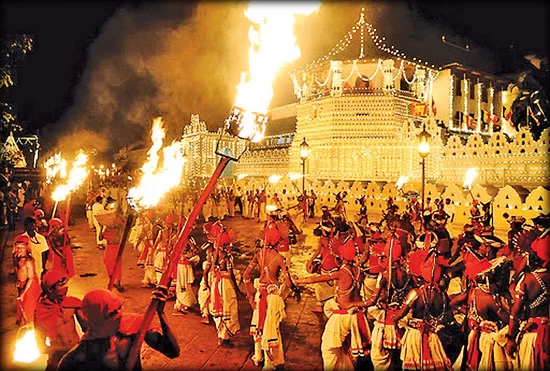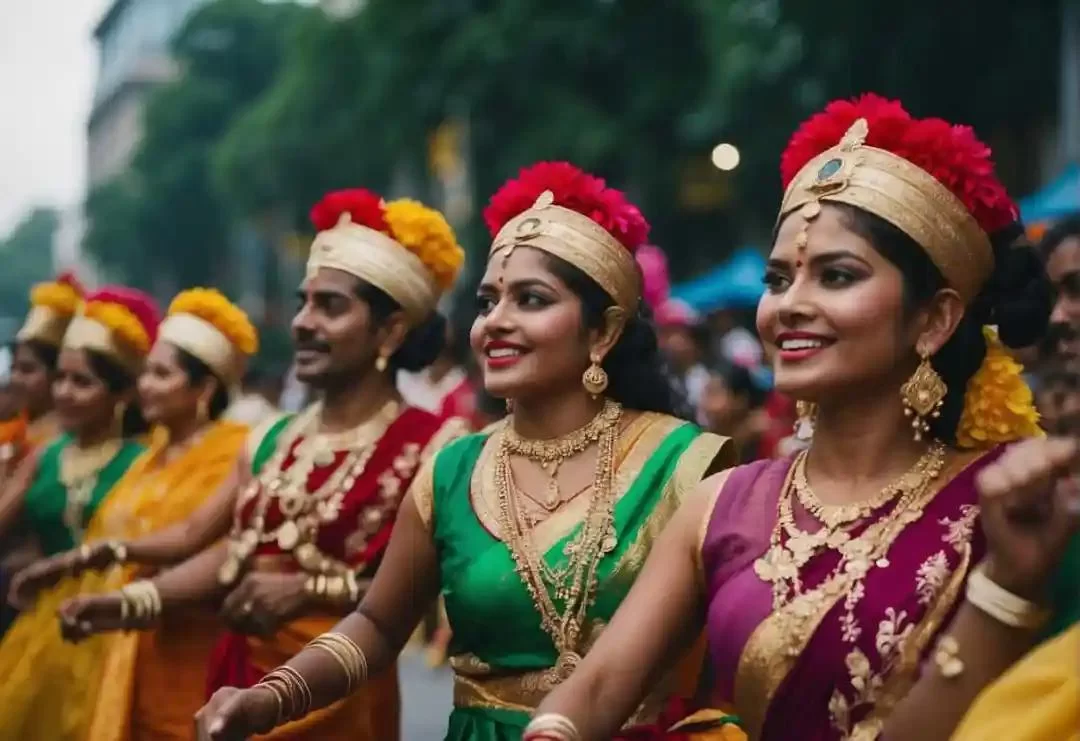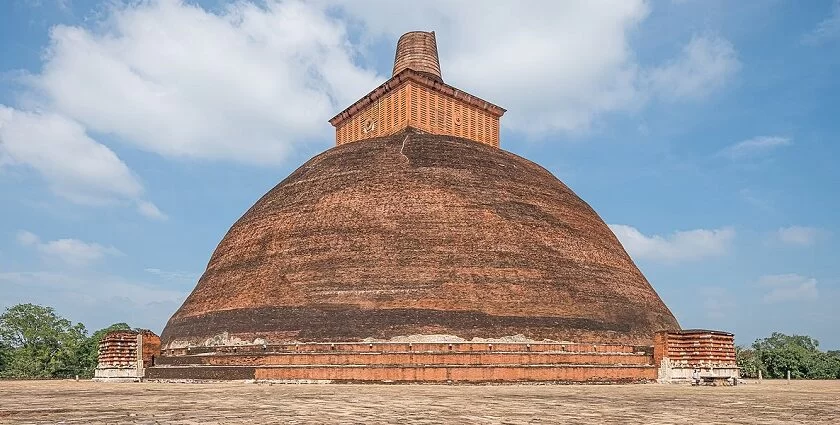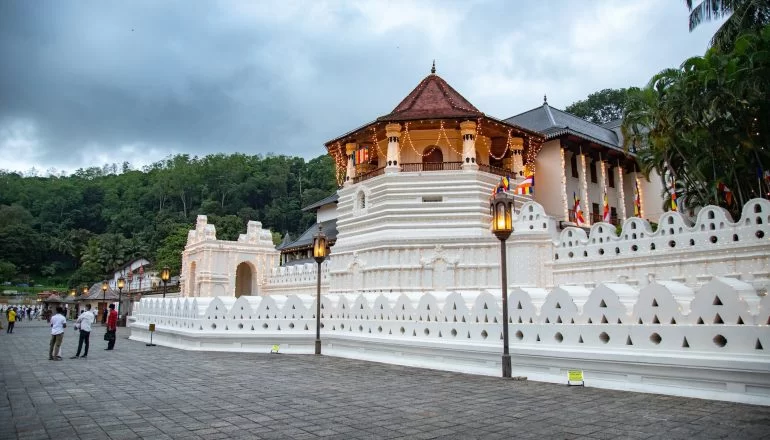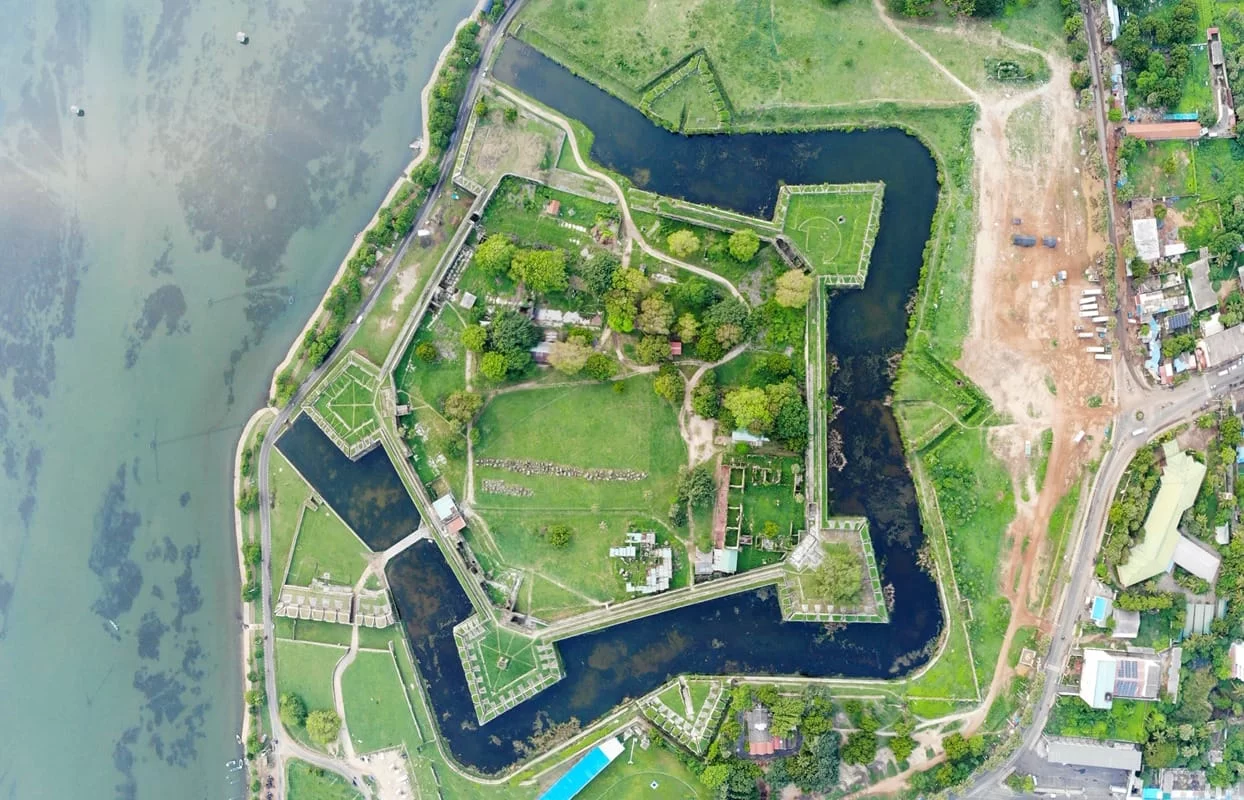Exploring Tamil Culture in Sri Lanka: Traditions, Heritage, and Festivals
- Introduction to Tamil Culture in Sri Lanka
- Tamil Heritage and Traditions in Sri Lanka
- Tamil Festivals in Sri Lanka
- Explore Tamil Cuisine
- How to Experience Tamil Culture in Sri Lanka
Introduction to Tamil Culture in Sri Lanka
Sri Lanka is a melting pot of cultures, and the Tamil culture plays a vital role in shaping the island's rich heritage. The Tamil community, primarily residing in the northern and eastern parts of Sri Lanka, has a deep influence on the country's traditions, art, language, and religious practices. Tamil culture in Sri Lanka is a unique blend of ancient customs and modern influences, offering travelers a fascinating cultural experience.
Tamil Heritage and Traditions in Sri Lanka
The Tamil heritage in Sri Lanka is centuries old, with influences from the Chola dynasty and South Indian culture. The Tamil community in Sri Lanka has preserved its traditions through language, art, and rituals. Visitors to the island can explore this rich heritage by visiting temples, local markets, and cultural landmarks.
1. Tamil Language
Tamil is one of the official languages of Sri Lanka, and it’s widely spoken in the northern and eastern regions. The Tamil language is integral to the community's identity, and its literature, music, and poetry have flourished throughout the centuries. Visitors can learn a few basic Tamil phrases, which can enhance their experience when interacting with locals.
2. Traditional Art and Dance
The Tamil community is known for its vibrant traditional arts, including classical dance forms like Bharatanatyam and music such as Carnatic music. These art forms are often performed during religious and cultural festivals and are a significant part of Tamil cultural life. Many cultural centers and temples in the Tamil-majority regions of Sri Lanka offer performances and classes for visitors to experience these traditions firsthand.
3. Temples and Religious Practices
Tamil culture in Sri Lanka is deeply intertwined with Hinduism, and temples dedicated to Hindu gods are an essential part of the landscape. The Nallur Kandaswamy Kovil in Jaffna is one of the most significant Hindu temples in Sri Lanka. Visitors can participate in temple ceremonies or simply admire the stunning architecture and intricate carvings that tell the stories of ancient Tamil gods and legends.
Tamil Festivals in Sri Lanka
Tamil festivals are colorful, joyous, and an integral part of the cultural calendar in Sri Lanka. These festivals offer an excellent opportunity to experience the vibrancy of Tamil traditions. Many of these festivals are celebrated with music, dance, and elaborate rituals, attracting both locals and visitors alike.
1. Thai Pongal
Thai Pongal is one of the most important festivals in Tamil culture, celebrated in January. It is a harvest festival that honors the Sun God and thanks the earth for its abundance. During this time, families prepare traditional dishes like Pongal rice and perform rituals to celebrate the harvest. The streets come alive with colorful decorations, and it’s an exciting time to experience Tamil hospitality and community spirit.
2. Maha Shivaratri
Maha Shivaratri is a Hindu festival dedicated to Lord Shiva and is celebrated with great fervor by Tamils in Sri Lanka. Pilgrims gather at temples, particularly in areas like Jaffna and Trincomalee, to observe fasting, prayers, and night vigils. The festival is a spiritual journey and provides visitors with an opportunity to witness the devotion and deep cultural connections of the Tamil community.
3. Vel Festival
The Vel Festival in Jaffna is another grand Tamil celebration. Dedicated to Lord Murugan, the festival includes colorful processions, dancing, and traditional rituals. The highlight of the festival is the procession carrying the Vel, a spear representing Lord Murugan. This vibrant event is a must-see for those visiting Sri Lanka during the festival period.
Explore Tamil Cuisine
Food is a central part of Tamil culture, and Sri Lankan Tamil cuisine is known for its bold flavors, aromatic spices, and unique preparations. A visit to the northern and eastern parts of Sri Lanka offers an opportunity to savor delicious Tamil dishes that are often accompanied by traditional rituals and communal dining.
1. Tamil Specialties
Some of the must-try dishes include Dosai (thin, crispy pancakes made from fermented rice and lentil batter), Idli (steamed rice cakes), Vadai (fried lentil fritters), and Fish Curry made with local seafood and aromatic spices. These dishes can be found in local eateries, known as Thamizh hotels, throughout the region.
2. Sweets and Desserts
Sri Lankan Tamils also have a strong tradition of making sweets such as Jaggery Kachil and Payasam (a sweet rice pudding). These desserts are often served during festivals and special occasions, providing a delicious insight into Tamil culinary practices.
How to Experience Tamil Culture in Sri Lanka
To truly immerse yourself in Tamil culture in Sri Lanka, here are a few tips for your visit:
1. Visit Jaffna
Jaffna, located in the northern part of Sri Lanka, is the heart of Tamil culture on the island. From ancient temples to vibrant markets, Jaffna offers visitors a chance to experience the richness of Tamil heritage. Don’t miss a visit to the Nallur Kandaswamy Kovil or the Jaffna Public Library, one of the largest libraries in South Asia.
2. Attend a Festival
Planning your trip around a Tamil festival is a fantastic way to experience the culture at its most vibrant. Thai Pongal in January, Maha Shivaratri in February, and the Vel Festival in August are excellent opportunities to witness the devotion, music, dance, and culinary traditions that define Tamil culture.
3. Explore Tamil Markets
The Tamil markets in cities like Jaffna and Trincomalee are full of life. Here, you can find spices, traditional textiles, handwoven baskets, and jewelry, all while enjoying the local hospitality. Be sure to try some local street food while you’re there!
For more information on Tamil culture and how to plan your visit to Sri Lanka, visit Tamil Travel Lanka and start planning your cultural journey today!

